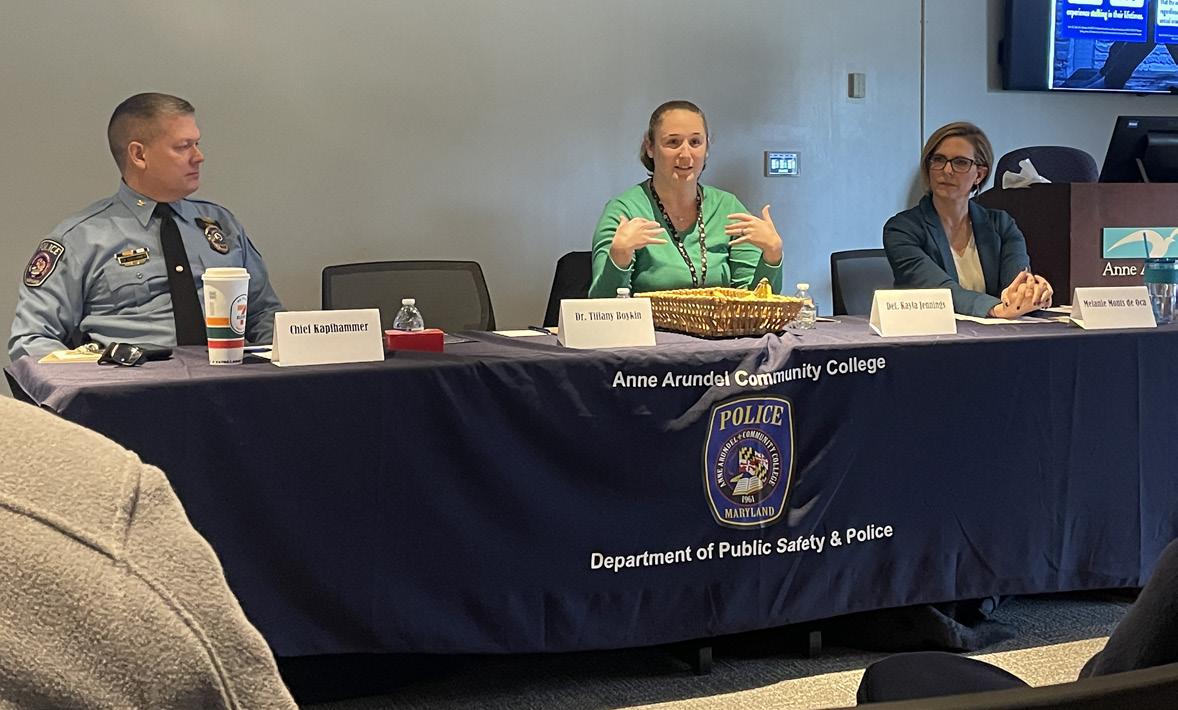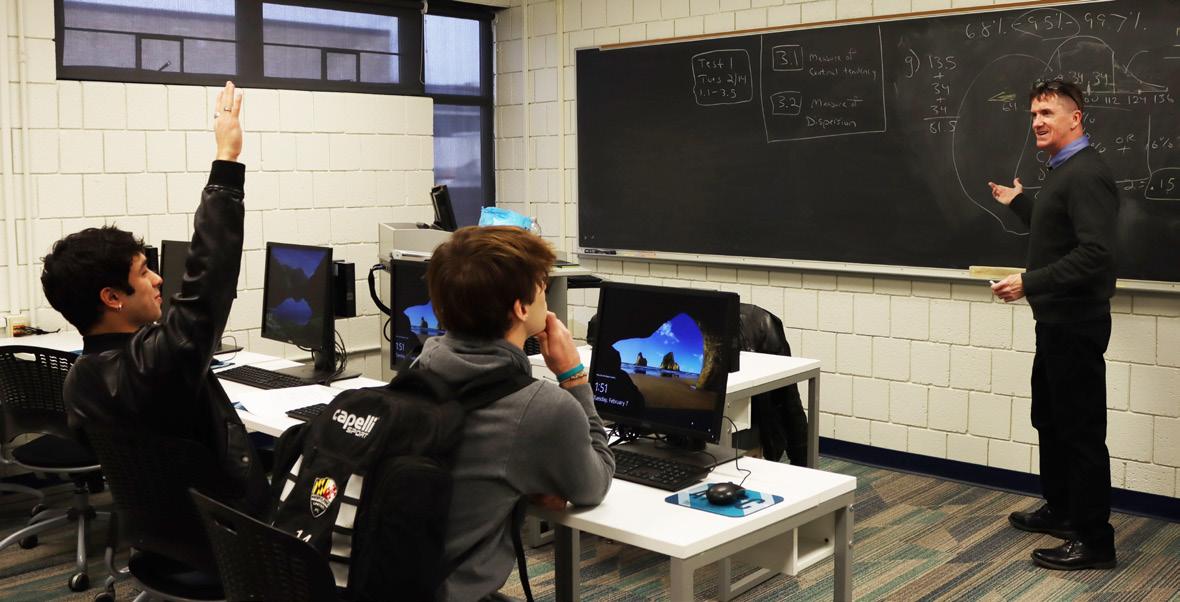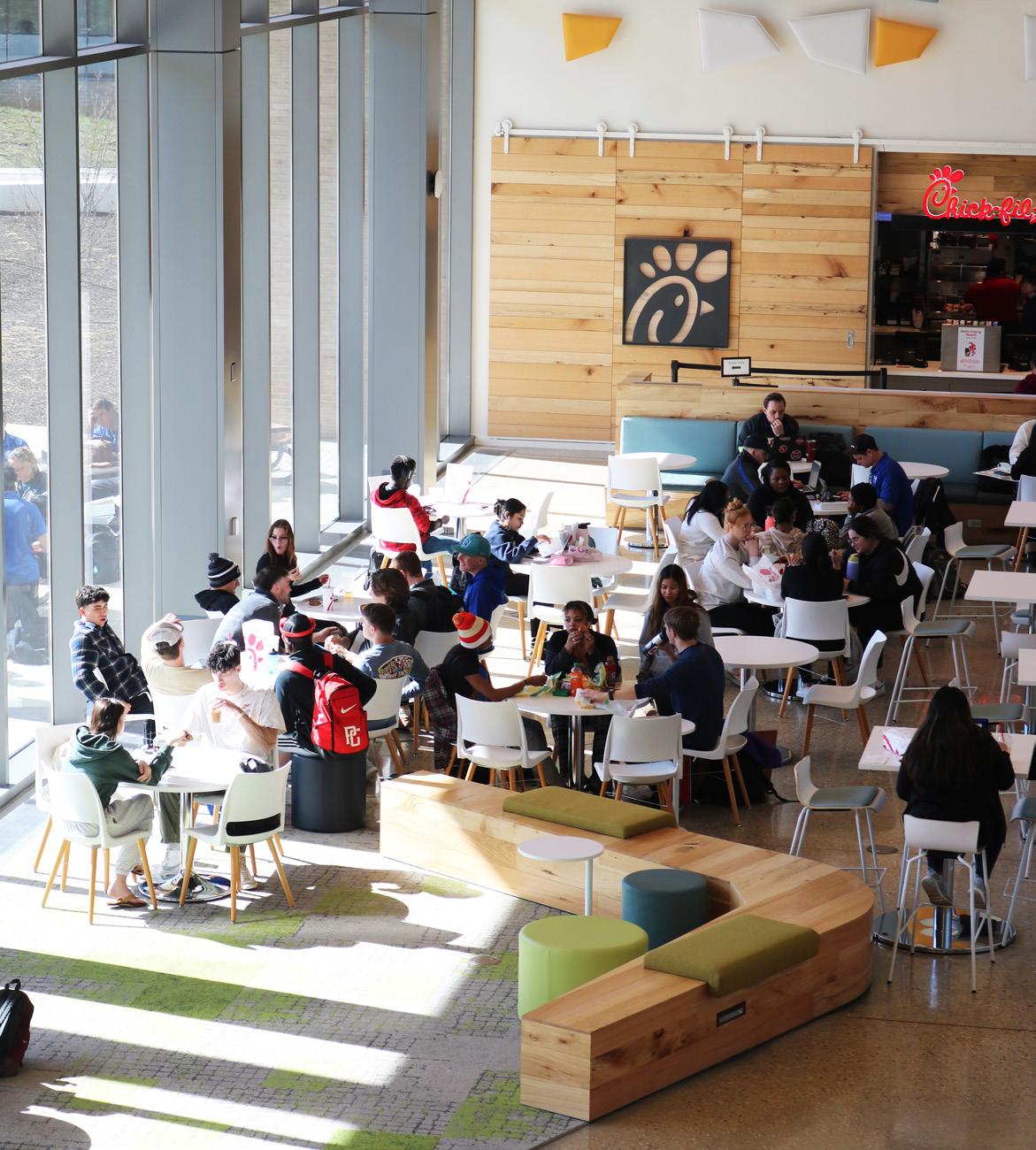
2 minute read
AACC stalking panel shares safety advice
from March 2023 Issue
This story contains mentions of stalking.
A stalking survivor who works at AACC advised students and faculty to “be observant of your surroundings, of yourself and others” during a February panel on stalking.
Advertisement
Melanie Monts De Oca, an AACC accessibility compliance officer, told a campus audience a stalker tried to follow her home after work one day, so she drove to a grocery store, where he followed her inside and she called the police.
During the incident, which occurred in the ’90s when she worked in Florida, “I trusted my instincts when I noticed that I just felt something was off,” De Oca said, adding her situational awareness helped keep her safe that night.
“I was very lucky, because that’s not the case for other people,” said De Oca, whose father was a police officer.
De Oca spoke alongside stalking experts at a panel hosted by AACC Public Safety to give advice and promote awareness.
The panel featured AACC Police Chief Sean Kapfhammer and Anne Arundel
County Police Detective Kayla Jennings, who specializes in domestic violence and stalking.
Kapfhammer and Jennings said two important things students can do if they think someone is stalking them are to be firm in telling the potential stalker the attention is unwanted, and to document all interactions and save any messages the person sends to them.
“They have to warn the potential stalker,” Kapfhammer said. “Some people don’t understand social cues.”
Jennings agreed, saying while “it’s tough to hurt someone’s feelings,” it’s nec-
The students said their favorite locations have features that make it easy to hang out with friends, eat or study on campus. This includes electrical outlets on tables and comfortable seating.

Sarah Kerr, a third-year web design student, said the Hatchery in Room 326 of the Careers Center has free resources for entrepreneurial students, including coffee, printing, computers and whiteboards.
Students said they choose their hangouts depending on what they plan to do with their time. For example, some go to the Health and Life Sciences building to eat at Chickfil-A and others spend time in the library when they want to study in a quiet place.

“I think it depends on the type of, like, studying and homework I want to get done,” Haley Herman, a firstyear education student, said. “If I’m trying to hang out with people, I’m in the Health and Life Sciences building, but if I’m trying to grind and get stuff done I’m definitely in the library.” cesary in these cases to be direct.
Jennings added documenting is “the biggest thing” to do so law enforcement can get involved and protect the victim.
“It’s really hard to find that fine line between unwanted attention and stalking,” Jennings said.
“Stalking is really, really, hard to prove. That’s why documentation is important.”
Kapfhammer said these stalking-related incidents are one of the most common things AACC’s Department of Public Safety and Police deals with. In October, campus police took three reports of alleged stalking.









